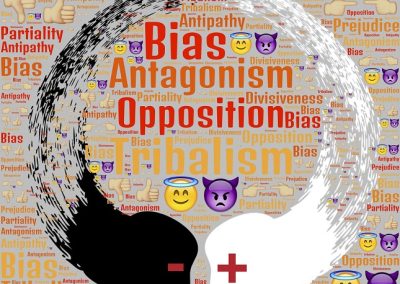While most of us find jargon to be annoying, it does have some benefits. Using or avoiding it should always be a mindful choice
Think outside the box. Or be disruptive. Or have a startup mindset. If you hear three different people saying this, they are probably meaning something very similar, but the words they use might suggest which organization they come from. That is because each industry, company, and job has its own jargon.
Most of us do not like jargon and, as soon as we detect it, stigmatize it as pretentious, unnecessary, and difficult to understand. Nevertheless, jargon is a staple of modern workplaces and creates a shared language code between members of the same organization or professional group. Jargon is made of words, expressions, acronyms, metaphors, and figures of speech that usually require a common background to be fully understood.
It might be annoying, but it is somehow useful. Corporate communication analysts acknowledge it contributes to efficient and accurate interactions between peers and teams, facilitates social bonding and the construction of a shared identity and culture. So, when you are a member of an organization or a specific network, it might be easier and more convenient to speak like your mates.
But a new study by a team of American researchers points out there is another unconscious reason for using jargon: it deals with insecurity and the desire to gain professional status. According to their tests, people who lack self-confidence are more likely to conform to corporate jargon or imitate their boss’ way of speaking. Similarly, people tend to compensate a lower status by using jargon to show off and convey a better, aspirational idea of themselves.
We should always be aware of how our communication resonates with our audience. This means, using or avoiding jargon should always be a mindful choice. Jargon might be a smart option to speed up internal communication (particularly if we are working with insiders on technical topics), improve group bonding and membership.
But it might be the wrong way to go if jargon makes communication incomprehensible to external stakeholders, since it can backfire and generate misunderstandings, refusal, or disengagement. Jargon can make people feel excluded, sound meaningless and even be perceived as bombastic, conniving, or manipulative.
To better assess whether jargon might be a resource or a boomerang, let’s go through a quick check list:
- Think about the audience and the context
Whom are we talking or writing to? Will they easily get the meaning of our words, expressions, or acronyms? Does the audience share the same background as ours?
In certain situations, like an internal meeting or a sales pitch, some jargon (not excessive jargon…) can add a bit of authority and assurance to our speech. But when we face a broad, heterogeneous audience, we should better use clear and unambiguous language. Should we say this with an acronym… we should better KISS our public speech, that is Keeping It as Simple and Short as we can.
- Check ourselves
Have we ever reread our mails, documents, or presentations? Or reheard the recording of our speeches? What do they sound like?
If there is a simpler, non-jargon way to communicate the same idea, it might be worth considering it. If we are unsure about the effectiveness of our speech, let’s ask a feedback to a trusted peer.
- Practice
There is no better way to improve our communication skills than practice. While preparing for an important presentation or meeting with either internal or external stakeholders, we should take some time for accurate rehearsal, paying attention to verbal communication (including the use of jargon) as well as of voice, posture, and body language. Contact us if you feel like needing some training!




